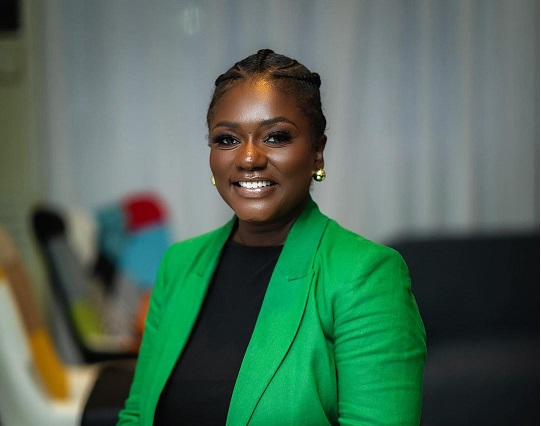Recognized for producing the GRAMMY Awards, the Recording Academy is extending its global outreach to assist artists who create music. The Academy has teamed up with Ministries of Culture and important stakeholders in the Middle East and Africa to bolster its presence and services in these quickly expanding music regions.
Ghana is not among the nations that have committed to the Grammy Africa model, according to Lady Dentaa Amoateng MBE, the CEO of GUBA Enterprise.
She clarifies that although Ghana would be able to participate in the awards, it will not be able to host events related to this new development. Nigeria, Kenya, Rwanda, and South Africa are the four nations that made up the founding group.
Speaking with Andy Dosty on Daybreak Hitz on Hitz FM, Dentaa stated that Ghana was unable to complete certain standards with the Recording Academy, which prevented the country from being among the founding members of Africa’s Grammy equivalent.
“Although it is somewhat regrettable, the agreement that was meant to be inked did not materialize, therefore those four nations will be allowed to host the Grammy Awards going forward. It only affects the hosting and other advantages that the nation will receive; it has no bearing on the nomination of any artist. Ghana is not currently a part of it, the speaker stated.
In response to the topic of what might have kept Ghana from signing the relevant agreement, she stated, “I think it is resources and a few things that the country will need to be part of it which I can’t say on the radio.”
Despite this, Dentaa pointed out that there is still time to complete that portion of the agreement. She mentioned that Ivory Coast and Ghana had signed an MOU, and that if they could complete the remaining conditions, they would be allowed to join the founding members and take advantage of the benefits that came with it.
Speaking on the Grammy Africa’s significance for the continent’s creative economies, the head
of GUBA Enterprise said it will provide Africans with a plethora of commercial prospects.
It’s significant because not all of Africa’s music is recognized by the Grammy accolades or the ninety other accolades that are given out; the range of music produced on the continent is enormous. It comes with several languages and other materials, which allows us to commemorate Africa. The Latin Grammy Awards, which have been held for 25 years, are devoted to promoting Latin music, so having our own will help us gain recognition in our culture, be promoted internationally, and create economic opportunities as well as industrial growth and tourism,” she said.
The Chief Executive of GUBA Enterprise, who initiated the move to incorporate African music into the Grammy’s operations, announced the news on social media. They worked behind the scenes with the Grammys team, organizing meetings with heads of state and leaders to ensure a successful global expansion. They express gratitude for the opportunity.
Harvey Mason Jr., CEO of the Recording Academy, has launched an initiative to support music creators worldwide. The Academy has been working with various ministries and music creators in various regions, including Kenya, Saudi Arabia, Nigeria, UAE, Rwanda, South Africa, Ghana, and Ivory Coast, and has signed MOUs.
The Recording Academy plans to champion music creators, empower them through enhanced training, produce original content celebrating African and Middle Eastern musical heritage, enhance support for existing members, advocate for strong IP legislation, and collaborate with partners to strengthen the creative economy in these regions. The Academy will publish reports highlighting its research and insights into these markets.
The Recording Academy is expanding its support for music creators globally, with plans to explore the Middle East and Africa. This expansion comes as the Academy celebrates the 25th anniversary of the Latin GRAMMY Awards and the first GRAMMY Awards show to be held overseas.
BY: APPIANIMAA MERCY





